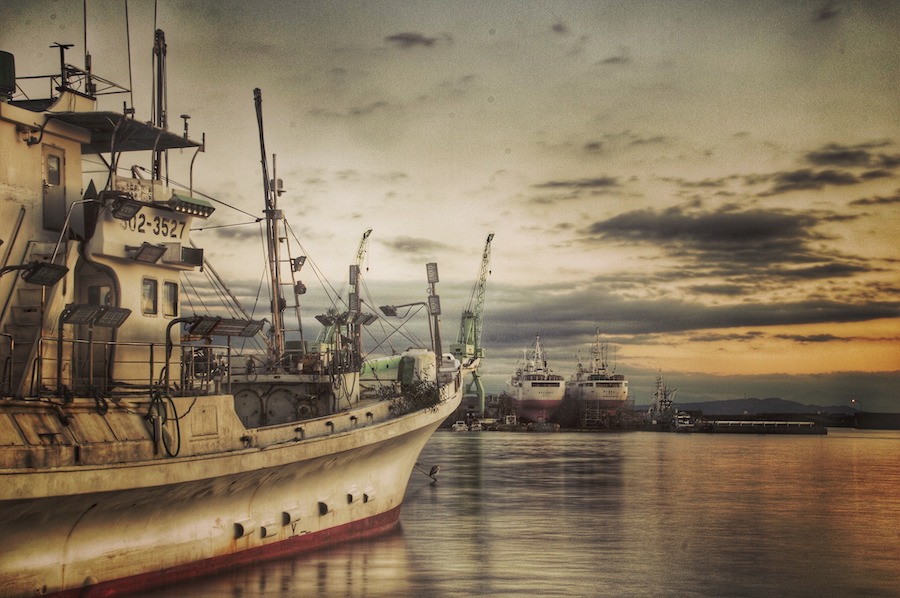 Earth & Space
Earth & Space
More boats and less fish in the oceans
Since the 50s, the number of fishing boats in the oceans has vastly increased. The quantity of fish we catch? Not so much. This discrepancy indicates that globally, we could manage our fishing activities a bit better.

A large portion of the world's population depends on marine fishing to maintain their way of life, whether from a diet, cultural, or employment perspective. We cannot separate the action of fishing from one of its most basic technical elements: the fishing boat. At a global level, institutions such as the United Nations' Food and Agriculture Organisation have invested a significant amount of time and effort into broadening our knowledge on fishing fleets. However, we still don't fully understand the full impact of fishing boats on marine life.
We wished to reduce this knowledge gap. Hence we collected information on fishing fleets of (almost) all countries with access to the sea and formulated a mathematical analysis to fill in the gaps and determine the size (motor power) of the world's fishing fleet. Previous studies have overlooked the composition of the fishing fleets, thus creating some uncertainties. We considered three distinct elements to classify the structure of fishing fleets: industrial boats, small-scale boats with an engine, and those without an engine. Estimating them separately for each country allowed us to reduce the error vastly.
We found that, since 1950, the number of boats in the oceans has more than doubled, from 1.7 to 3.7 million. The increase is that much more dramatic in the engine-powered small-scale fleet of the world, which represents now the majority of boats in numbers. At the same time, motors kept on becoming more efficient, and the pressure that fishing fleets put on the ocean (fishing effort) increased.
Unfortunately, the fish population did not recover as fast as the fishing fleet was becoming more prominent and more powerful. As a consequence, there has been a worldwide reduction in the efficiency of fishing activities. We are spending way more time at sea than we used to, but comparatively, we are catching as much fish, if not less. This situation could become a problem, as many people rely on fish simply to survive, and motorization and fishing technologies keep on developing. At this rate, fisheries management will need to take drastic measures at the local, national, and international levels, to ensure that we can maintain our impact on the oceans at sustainable levels. Some of these shifts in management are already observed, particularly in Europe and North America. Nevertheless, the change needs to be widespread to ensure that we keep having access to oceans' resources.
Original Article:
Rousseau Y, Watson R, Blanchard J, Fulton E. Evolution of global marine fishing fleets and the response of fished resources. Proceedings of the National Academy of Sciences. 2019;116(25):12238-12243.Next read: Warm waters hide in the unlikeliest of places – under the Arctic sea ice by Mary-Louise Timmermans
Edited by:
Massimo Caine , Founder and Director
We thought you might like
Microscopic Body-Snatchers Infest Our Oceans
Jun 5, 2018 in Earth & Space | 3.5 min read by Aditee MitraThe shape of the ocean: deep waters and their movement
Jul 31, 2018 in Earth & Space | 3.5 min read by Casimir de LavergneSeal poo unravels the microplastic journey through marine food webs
Oct 8, 2018 in Earth & Space | 4 min read by Sarah NelmsMore from Earth & Space
Discovery of the first radiation belt beyond the Solar System
Jan 27, 2025 in Earth & Space | 3.5 min read by Juan Bautista Climent OliverOne million (paper) satellites
Jan 24, 2025 in Earth & Space | 3 min read by Ewan Wright , Andrew FalleVolcanic Ash: A Nutrient Boost for Reef-Building Corals
Sep 18, 2024 in Earth & Space | 4 min read by Frank Förster , Tom SheldrakeAmmonia Energy: A Call for Environmental Awareness
Aug 29, 2024 in Earth & Space | 3.5 min read by Matteo Bertagni , Robert Socolow , Amilcare PorporatoLikely increase in coral thermal tolerance at a Pacific archipelago
Dec 29, 2023 in Earth & Space | 3 min read by Liam LachsEditor's picks
Trending now
Popular topics


